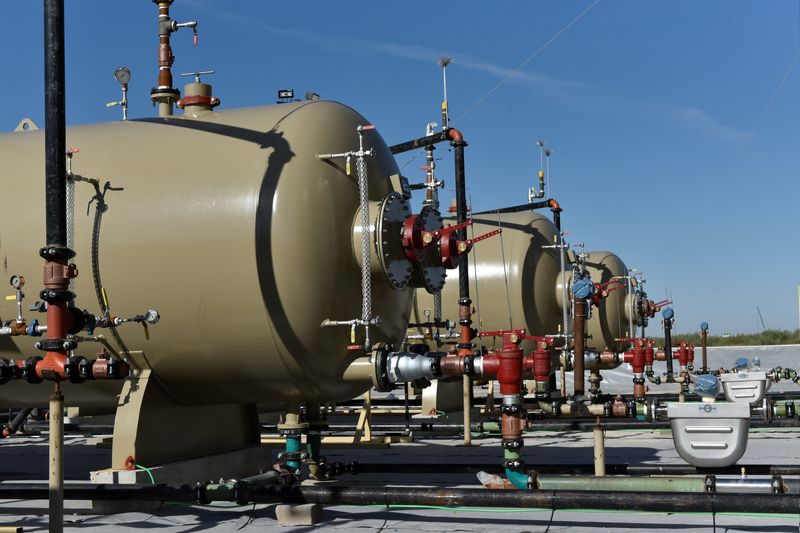
Investing.com– Oil prices rose Tuesday, continuing to rebound from more than three-month lows, with the focus on upcoming inflation readings this week as well as a meeting if top producers to discuss output levels.
At 07:40 ET (11:40 GMT), rose 0.1% to $82.94 a barrel, while gained 1.4% to $78.85 a barrel.
Crude prices rose over 1% on Monday in muted trade owing to public holidays in the UK and the U.S., bouncing back after sinking to the lowest levels since early-February last week.
Inflation data awaited for more rate cues
Significant attention this week will be on key inflation readings from the U.S. and other major economies, with traders looking for more information over future monetary policies and the impact on global growth going forward.
In the U.S., data, which is the Federal Reserve’s preferred inflation gauge, is due Friday, and is expected to show some mild cooling in inflation. But the reading is still expected to remain well above the Fed’s 2% annual target, giving the bank more impetus to keep rates higher for longer.
Fears of the Fed maintaining a tight monetary policy for a lengthy period of time were a key point of pressure on oil prices last week, after several Fed officials warned that sticky inflation will keep the bank from loosening early. They also boosted the , which further weighed on prices.
High rates are expected to stymie economic activity, in turn weighing on oil demand.
Inflation data from the , and are also due through the week, and are likely to factor into monetary policy expectations for their respective central banks.
Markets were also seen pricing in a potential interest rate cut by the European Central Bank next week.
Beyond the inflation data, readings from top oil importer China are also due this week.
OPEC+ meeting awaited for supply cues
The focus was also on an upcoming meeting of the Organization of Petroleum Exporting Countries and allies (OPEC+), which is set to take place online on June 2.
Traders will be looking to see if the cartel agrees to extend its current voluntary production cuts, of 2.2 million barrels per day, past a June 30 deadline.
The OPEC+ has slashed production over the past year to support oil price, but this has provided only fleeting support to prices, as markets fretted over sluggish demand.
“The recent weakness in the market increases the likelihood of a full rollover of OPEC+ additional voluntary cuts at least through the third quarter of this year,” said analysts at ING, in a note.
“Expectations for such action are growing, so anything less will disappoint the market. However, fundamentally the market only needs to see a partial rollover, so there is a risk that OPEC+ overtightens the market in the third quarter of the year.”
(Ambar Warrick contributed to this article.)

